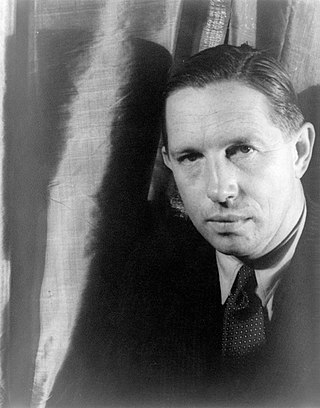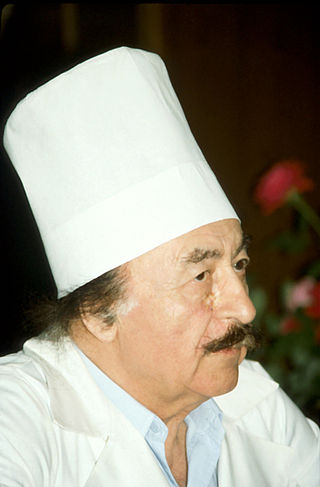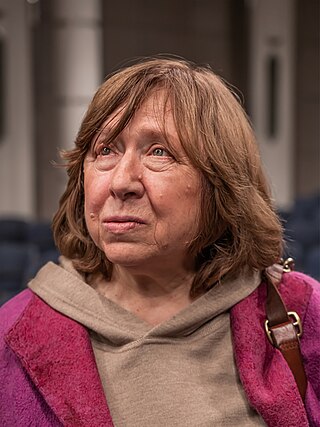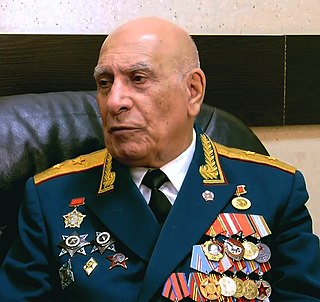Related Research Articles

The Soviet–Afghan War was a protracted armed conflict fought in the Soviet-controlled Democratic Republic of Afghanistan (DRA) from 1979 to 1989. The war was a major conflict of the Cold War as it saw extensive fighting between Soviet Union, the DRA and allied paramilitary groups against the Afghan mujahideen and their allied foreign fighters. While the mujahideen were backed by various countries and organizations, the majority of their support came from Pakistan, the United States, the United Kingdom, China, Iran, and the Arab states of the Persian Gulf. The involvement of the foreign powers made the war a proxy war between the United States and the Soviet Union. Combat took place throughout the 1980s, mostly in the Afghan countryside. The war resulted in the deaths of approximately 3,000,000 Afghans, while millions more fled from the country as refugees; most externally displaced Afghans sought refuge in Pakistan and in Iran. Approximately 6.5% to 11.5% of Afghanistan's erstwhile population of 13.5 million people is estimated to have been killed over the course of the conflict. The Soviet–Afghan War caused grave destruction throughout Afghanistan and has also been cited by scholars as a significant factor that contributed to the dissolution of the Soviet Union, formally ending the Cold War. It is also commonly referred to as "the Soviet Union's Vietnam".

The Stakhanovite movement was a mass cultural movement of workers which originated in the Soviet Union, and encouraged socialist emulation and rationalization of workplace processes. The Stakhanovites modeled themselves after Alexei Stakhanov, a coal miner, and took pride in their ability to produce more than was required by working harder and more efficiently, thus contributing to the common good and strengthening the socialist state. The movement began in the coal industry but later spread to many other industries in the Soviet Union. Initially popular, it eventually encountered resistance as the increased productivity led to increased demands on workers.

Anastas Ivanovich Mikoyan was a Soviet politician and Bolshevik revolutionary who served as the Chairman of the Presidium of the Supreme Soviet, the head of state of the Soviet Union. A member of the Communist Party's Central Committee from 1923, he was the only Soviet figure who managed to remain at the highest levels of power from the days of Lenin, through the eras of Stalin and Khrushchev, and to his retirement under Brezhnev. His legacy is that of a survivor, often described with the famous quote “from Ilyich [Vladimir Ilyich Lenin] to Ilyich [Leonid Ilyich Brezhnev] without a heart attack or paralysis".

Ruslan Sultanovich Aushev is a Russian Ingush former politician. He was the President of Ingushetia from March 1993 to December 2001. He was reportedly the youngest officer in the Soviet Army to reach the rank of lieutenant general. He was awarded the title Hero of the Soviet Union on 7 May 1982 for his actions in Afghanistan. Aushev has emerged as Ingushetia's most popular politician, having kept peace and stability during the First Chechen War.

Louis Bromfield was an American writer and conservationist. A bestselling novelist in the 1920s, he reinvented himself as a farmer in the late 1930s and became one of the earliest proponents of sustainable and organic agriculture in the United States. He won the Pulitzer Prize for the Novel in 1927 for Early Autumn, founded the experimental Malabar Farm near Mansfield, Ohio, and played an important role in the early environmental movement.
The Liberators: My Life in the Soviet Army (1981) by Viktor Suvorov is a non-fiction, personal account of the Soviet Army during the 1960s and 1970s. Drawing from his own experiences, Suvorov provides insight into the brutality of a military machine in which soldiers are treated with little regard. A veteran of the Soviet army and intelligence, Suvorov had defected to the United Kingdom in 1978.

Zhores Aleksandrovich Medvedev was a Russian agronomist, biologist, historian and dissident. His twin brother is the historian Roy Medvedev.
Thomas Lynch is an American poet, essayist, and undertaker.

Gavriil Abramovich Ilizarov was a Soviet physician, known for inventing the Ilizarov apparatus for lengthening limb bones and for the method of surgery named after him, the Ilizarov surgery.

Propaganda in the Soviet Union was the practice of state-directed communication aimed at promoting class conflict, proletarian internationalism, the goals of the Communist Party of the Soviet Union, and the party itself.

The Tajbeg Palace assault, known by the military codename Operation Storm-333, was a military raid executed by the Soviet Union in Afghanistan on 27 December 1979. Special forces and airborne troops stormed the heavily fortified Tajbeg Palace in Kabul and assassinated Afghan leader Hafizullah Amin, a Khalqist of the People's Democratic Party of Afghanistan (PDPA) who had taken power in the Saur Revolution of April 1978. It was the start of the Soviet–Afghan War.

Svetlana Alexandrovna Alexievich is a Belarusian investigative journalist, essayist and oral historian who writes in Russian. She was awarded the 2015 Nobel Prize in Literature "for her polyphonic writings, a monument to suffering and courage in our time". She is the first writer from Belarus to receive the award.
The Soviet–Afghan War had an important impact in popular culture in the West, due to its scope, and the great number of countries involved. The Russian-Ukrainian film The 9th Company, for example, became a blockbuster in the former USSR earning millions of dollars and also representing a new trend in Russia in which some domestic films are "drawing Russian audiences away from Hollywood staples." The use of the war in Russian cinema has attracted scholarly attention as well. Some of this attention focuses on comparisons of the conflict with other modern wars in Vietnam and Iraq. Other work focuses on the war and fictional accounts of it in the context of Soviet military culture. Even when not directly portrayed, service in the war is sometimes used as a backstory for Russian characters to explain their combat prowess, such as in the manga and anime series Black Lagoon.

The Ground Forces of the Armed Forces of the Soviet Union was the land warfare service branch of the Soviet Armed Forces from 1946 to 1992. In English it was often referred to as the Soviet Army.

Relations between Afghanistan and Germany date back to the late 19th century and have historically been strong. 100 years of "friendship" were celebrated in 2016, with the Afghan President calling it a "historical relationship".

Norat Grigoryevich Ter-Grigoryants is a retired Soviet and Armenian lieutenant-general who played a leading role in developing the Armed Forces of Armenia in 1992–1995, including during the First Nagorno-Karabakh War.
Mazhory is a slang term used in the Soviet Union and post-Soviet countries for children of privileged people, who take advantage of their inborn privileges, often in an arrogant and abusive way.

The Red Army intervention in Afghanistan in 1929 also known as the First Soviet Intervention in Afghanistan of 1929 was a special operation aimed at supporting the ousted king of Afghanistan, Amanullah Khan, against the Saqqawists and Basmachi.
Women in the Soviet–Afghan War were active in a variety of roles.
References
- ↑ Zinky Boys: Soviet Voices from the Afghanistan War. W W Norton 1992 (ISBN 0-393-03415-1), translated by Julia and Robin Whitby
- ↑ Boys in Zinc. Penguin Modern Classics 2016 ISBN 9780241264119, translated by Andrew Bromfield
- ↑ Н.А.Сивакова, ОСОБЕННОСТИ ТЕКСТУАЛЬНОЙ ОРГАНИЗАЦИИ ДОКУМЕНТАЛЬНОЙ ПОВЕСТИ СВЕТЛАНЫ АЛЕКСИЕВИЧ «ЦИНКОВЫЕ МАЛЬЧИКИ»
- 1 2 Dietmar Jacobsen, Eine Historikerin des Spurlosen. Mit „Zinkjungen“ setzt Swetlana Alexijewitsch den Veteranen und Opfern des Afghanistankrieges ein Denkmal
- ↑ Вечерний Минск, January 19, 1993
- ↑ Собеседник no. 6, 1993
- ↑ Literaturnaya Gazeta, February 10, 1993
- ↑ Jones, Jeffrey W. (2017). "Mothers, prostitutes, and the collapse of the USSR: The representation of women in Svetlana Aleksievich's Zinky Boys". Canadian Slavonic Papers. 59 (3–4): 234–258. doi:10.1080/00085006.2017.1381545. S2CID 158101747. Archived from the original on 2021-07-09. Retrieved 2021-07-17.
- ↑ Briefly reviewed in the January 2023 issue of Harper's Magazine , pp.71–73.
- ↑ spiegel.de 1992: Auszug Archived 2015-09-25 at the Wayback Machine